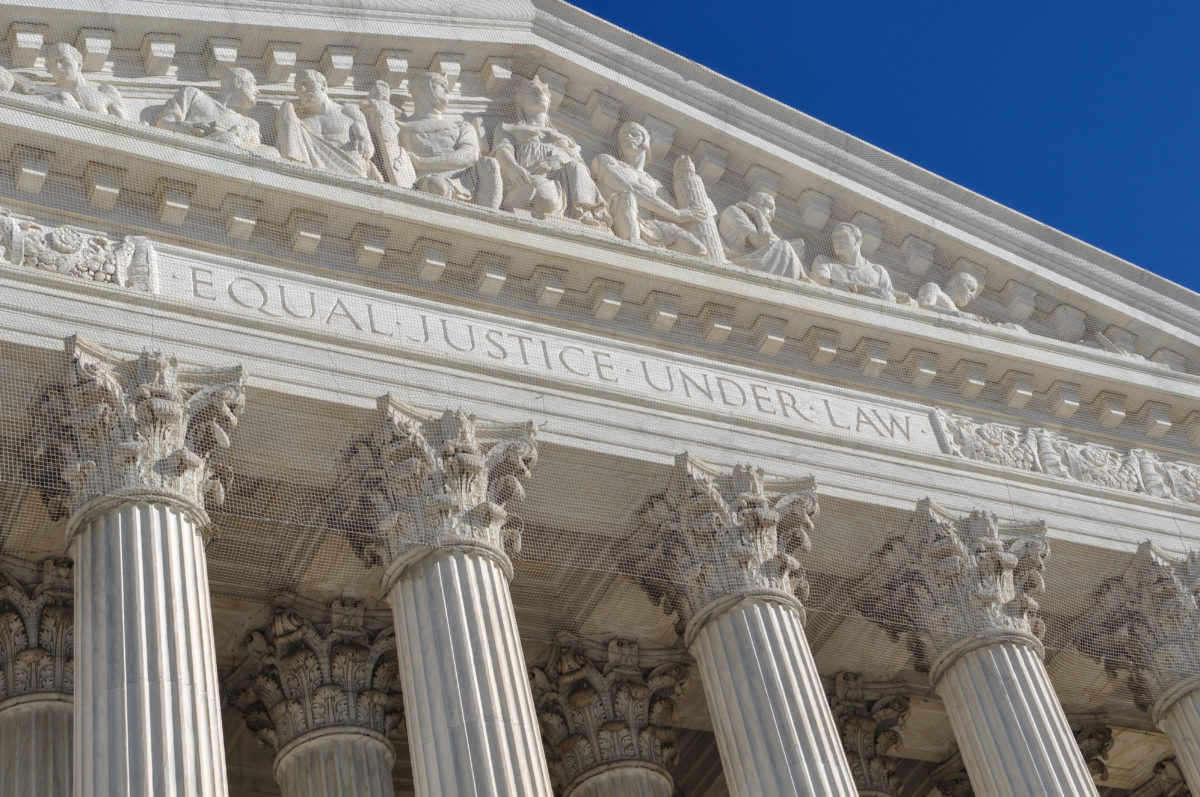The Federal Bureaucracy in Check
Originally published at The Washington TimesCongress, despite many chances, has not been willing to take responsibility for checking “the administrative state,” as the aggrandizing bureaucratic power of federal agencies has come to be known.
Arrival of a Democratic House makes it still less likely that Capitol Hill will resist the continued expansion of federal rules and regulations. As executive, President Trump has tried to slow the regulatory march, and he has had some success. But the White House alone cannot contain the semi-independent rules-making power of some 220,000 federal regulators, that, like the magic in the “Sorcerer’s Apprentice,” pops out an endless parade of new legal devices.
A new book, however, suggests an encouraging opportunity to do something about it. The opportunity resides at the U.S. Supreme Court.
The rise of the administrative state is a function of bureaucracy that challenges the authority of the people themselves as sovereigns in a representative democracy. And, to some degree, people seem to be figuring that out. A SurveyMonkey poll (sponsored by Discovery Institute) shows that 72 percent of American adults think bureaucrats “have too much power.” However, the same survey shows that 70 percent also think elected officials have too much power. There seems to be some confusion here. A major reason that federal bureaucrats have expanded their power is that Congress has been imprecise in exercising its power.
Under the U.S. Constitution, notes Peter J. Wallison, author of “Judicial Fortitude: The Last Chance to Rein in the Administrative State,” if elected representatives fail to restrain the bureaucracy’s excesses the job logically falls to the courts. Mr. Wallison’s closely reasoned book came just as Justice Brett Kavanaugh joined the Supreme Court, providing a potential fifth vote for reform on the issue of agency overreach. Justice Kavanaugh’s own record shows a skepticism toward judicial deference to bureaucratic claims of authority, claims that strict constructionists believe effectively constitute law-making rather than law implementation.
For decades, Congress, in order to reach a final consensus on difficult but popular seeming legislation — say, on civil rights or clean water — often has yielded to a temptation to fudge or ignore key details of their work. Left then to administer the laws, federal agencies are usually happy to fill in the blanks with the bureaucrats’ own ideas. Semi-independent agencies that were set up merely to execute laws thereby have been allowed to blaze new trails in policy. The resulting “administrative state” was never anticipated by the authors of the U.S. Constitution, as Mr. Wallison explains in detail. And for good reason: The growth of an administrative state leaves the supposed sovereign in our system — the people — without much recourse when new regulations prove deeply problematic.
Mr. Wallison was counsel to President Ronald Reagan and before that served in the Treasury Department. In addition, over the years as a lawyer and, lately, a scholar at the American Enterprise Institute, he is a champion of realistic rules in politics and government that permit the flourishing of personal freedom and economic growth. His latest book coincides with the new makeup of the Supreme Court, making his proposals much more feasible. Indeed, “Judicial Fortitude” could become a kind of guidebook for constraining big government.
But the court needs more than a guidebook on this topic. Two precedents that have shaped judicial opinions for decades, described as “Auer deference” and “Chevron deference,” stand in the way of a return to limitations on bureaucratic initiatives. In the Auer case (1997), the court seemed reluctant to accept challenges to a federal agency’s interpretation of its own rules, while in the Chevron case (1984), the court directed lower courts to defer to an agency’s interpretations of laws passed by Congress if those interpretations are deemed “reasonable.”
To reopen its direction on these kinds of cases, the court obviously needs some new cases to consider. Just in time to welcome Justice Kavanaugh comes Kisor v. Wilkie, a case involving a Veterans Administration decision not to grant benefits to a veteran seeking treatment for post-traumatic stress. The VA rules might be thought ambiguous, the lower court ruled, but for that very reason, the VA’s own interpretations of them in the Kisor case should be assumed proper — based on the Auer precedent. The willingness of the court to take Kisor suggests that at least some of the justices think the lower court’s decision might be overturned, and with it the Auer deference.
Should that happen, one might anticipate another case raising the Chevron deference standard, which is even more consequential, since it goes to the question of congressional intent. It isn’t just a matter of bureaucrats moving in on legislators’ turf, it is the willingness of the legislators to let them do so. This is one of the salient constitutional issues of our time. In essence, Mr. Wallison is asking for the court to tell Congress, “Do your job.”
Mr. Wallison correctly points out that under the Constitution the judiciary is charged with disciplining the other branches when they usurp authority not theirs, but it also must discipline them when they try to dodge their constitutional responsibilities. “Waiting for congress to find the right answer may mean that many issues will go unresolved for a time, but that is the price of democracy,” Mr. Wallison states. It’s an exhortation that could well be emblazoned on an historic decision by the Supreme Court — someday soon.
